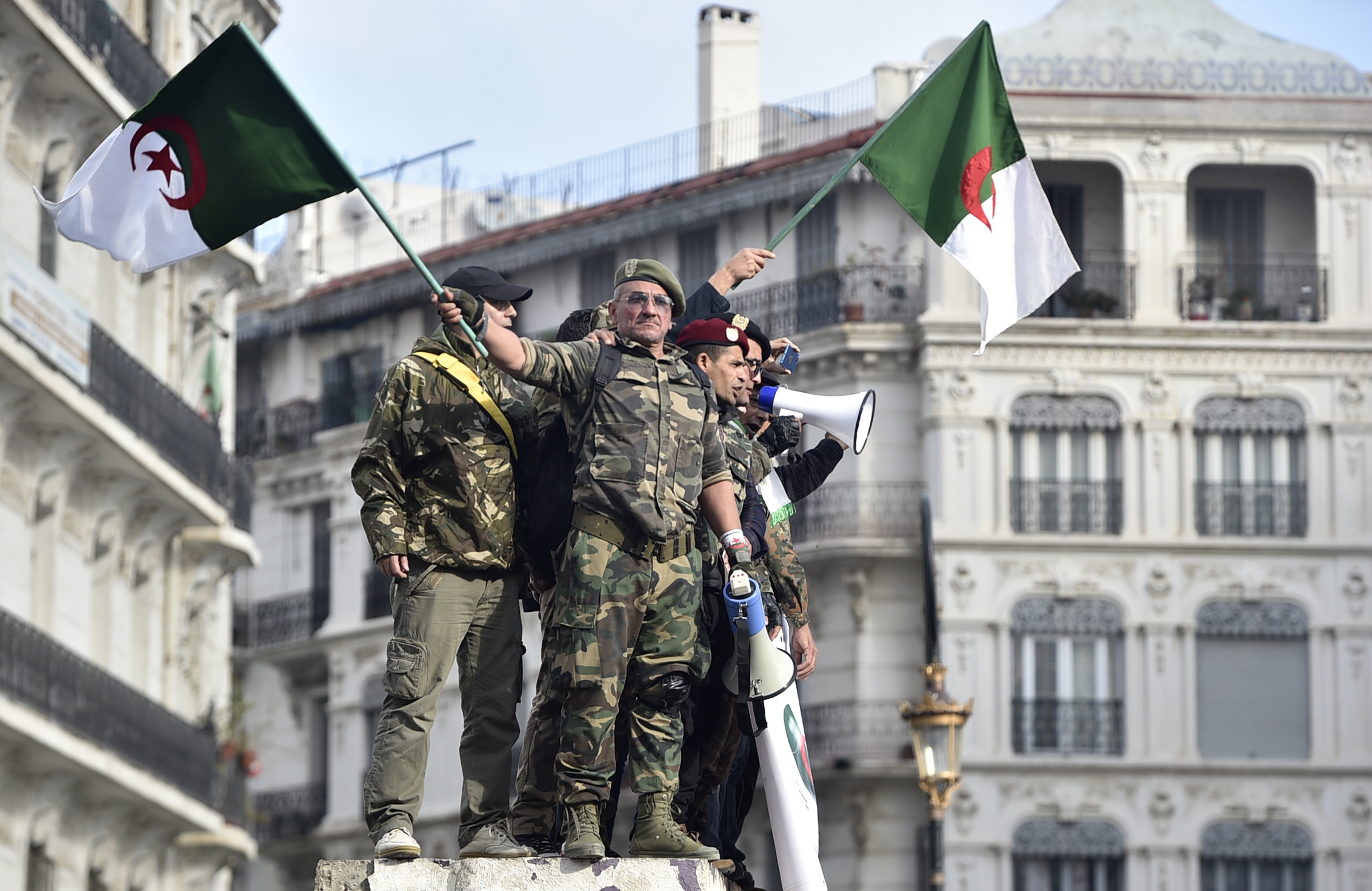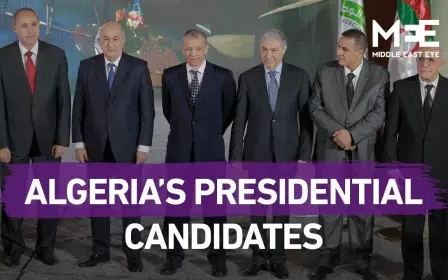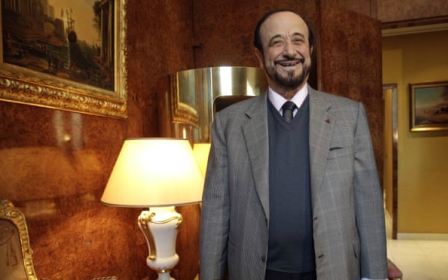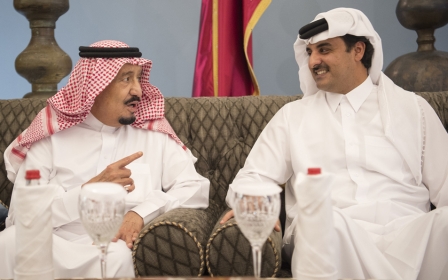Arabic press review: Algeria’s prosecutor seeks 20 years each for two ex-prime ministers

Bouteflika bonfire
Algeria’s public prosecutor is seeking 20-year prison sentences for two former prime ministers in an unprecedented trial of prominent figures of former president Abdelaziz Bouteflika’s era, according to Asharq Al-Awsat.
Some 19 ex-politicians and businessmen are facing charges ranging from corruption to money laundering and abuse of office.
The prosecutor has requested a 20-year prison sentence and a $10,000 fine for Ahmed Ouyahia and Abdelmalek Sellal, both of whom served as prime minister under Bouteflika.
A similar sentence has been sought for former minister of industry, Abdeslam Bouchouareb, who had fled Algeria and is being tried in absentia.
New MEE newsletter: Jerusalem Dispatch
Sign up to get the latest insights and analysis on Israel-Palestine, alongside Turkey Unpacked and other MEE newsletters
Two other industry ministers, Youcef Yousfi and Mahdjoub Bedda, are also facing 15-years prison sentences.
The state prosecutor said that the former state officials have cost the public treasury a loss of $ 1.5bn.
He also said that the trial represents a unique and unprecedented case, and is considered a first in the history of the Algerian judiciary where prominent officials are facing justice, investigation and trial.
The trial is the first of its kind after Bouteflika stepped down in April and widespread investigations into corruption were launched.
Assad gets currency help from UAE
A former Syrian official said the United Arab Emirates (UAE) has recently provided financial support in various forms to Bashar al-Assad’s government, as Syria deals with a plummeting currency, Al-Araby Al-Jadeed reported.
The news outlet quoted the official as saying that Dubai has sponsored several investments and facilitated smuggled funds to the Syrian government, putting brakes on the fast devaluation of the Syrian pound.
The official, who spoke on condition of anonymity, said that after mutual visits the countries’ businessmen and the UAE’s participation in the Damascus International Fair, Abu Dhabi has agreed with businessmen close to Assad to provide Syria with $2bn. The agreement includes financing the shipments of wheat, fuel and foodstuffs.
The official claimed that the reason behind the back-and-forth visits is to find ways to financially support Assad and circumvent US and European sanctions by establishing fake companies in the Jebel Ali area in Dubai and providing the Syrian government with goods and products via Lebanon.
The UAE reopened its embassy in Damascus in December 2018, and has been seeking mediation between Assad and Riyadh to reopen the Saudi embassy in the Syrian capital, according to sources who spoke to the London-based news outlet.
Qatar and Saudi Arabia make conversation
Saudi Arabia and Qatar have recently discussed their two-and-a-half-year dispute and have dealt with some of the causes behind the diplomatic crisis between Gulf countries, a Kuwaiti newspaper quoted sources familiar with the matter as saying.
The sources told Al-Qabas that Kuwait’s efforts to end the crisis and “reunite” the Gulf states have achieved significant progress in the ongoing discussions.
Saudi Arabia, the United Arab Emirates, Bahrain and Egypt imposed a blockade on Qatar and cut off diplomatic ties with Doha in June 2017, accusing it of supporting terrorism and of fostering close ties with Tehran.
The boycotting countries imposed 13 demands on Qatar, including the closure of a Turkish military base, the shuttering of Al Jazeera, and reducing ties with Iran.
The newspaper said that Saudi and Qatari officials have removed some of the most prominent causes behind the Gulf crisis, without giving further details or mentioning the time and place of these meetings.
This report comes days after Qatar’s Foreign Minister Mohammed bin Abdulrahman Al Thani said that "the Gulf crisis has passed the stalemate phase".
"The ongoing talks on the Gulf crisis have achieved progress," Thani said at a foreign policy conference in Rome on Friday.
* Arabic press review is a digest of reports that are not independently verified as accurate by Middle East Eye.
Middle East Eye delivers independent and unrivalled coverage and analysis of the Middle East, North Africa and beyond. To learn more about republishing this content and the associated fees, please fill out this form. More about MEE can be found here.




